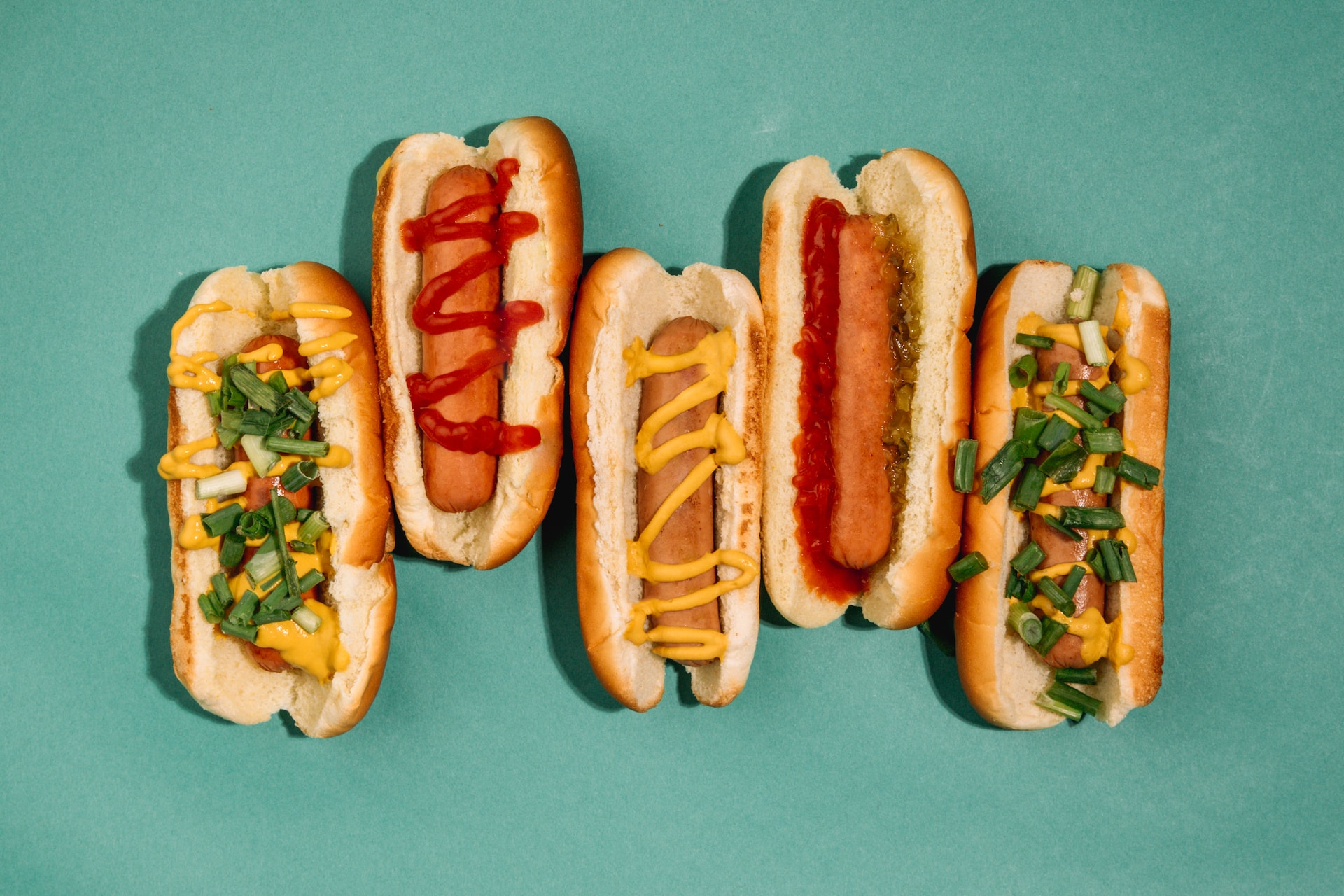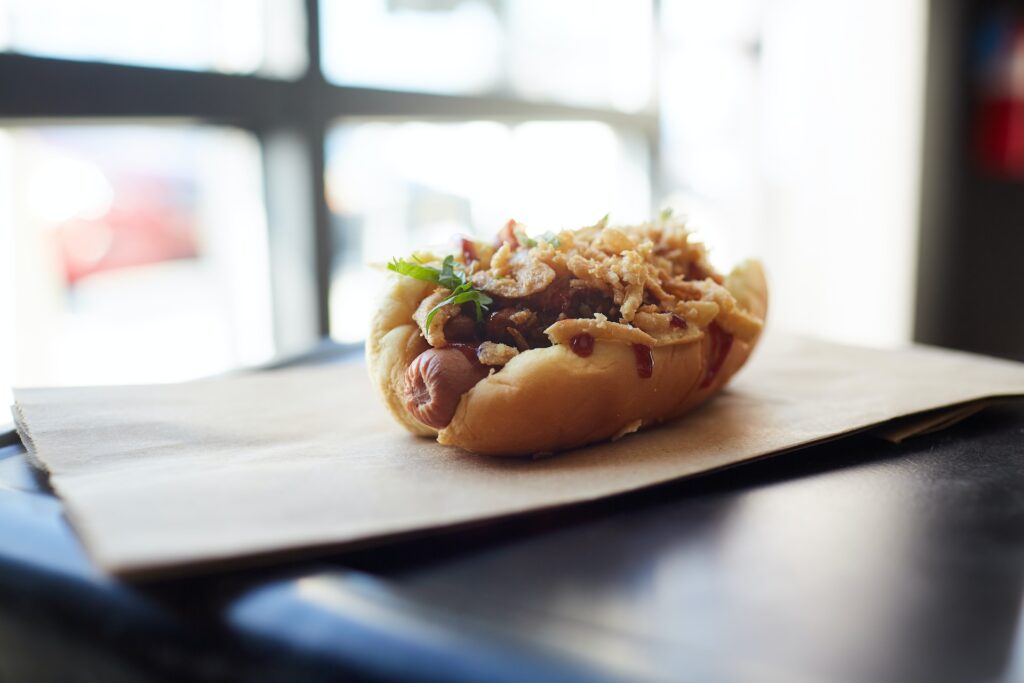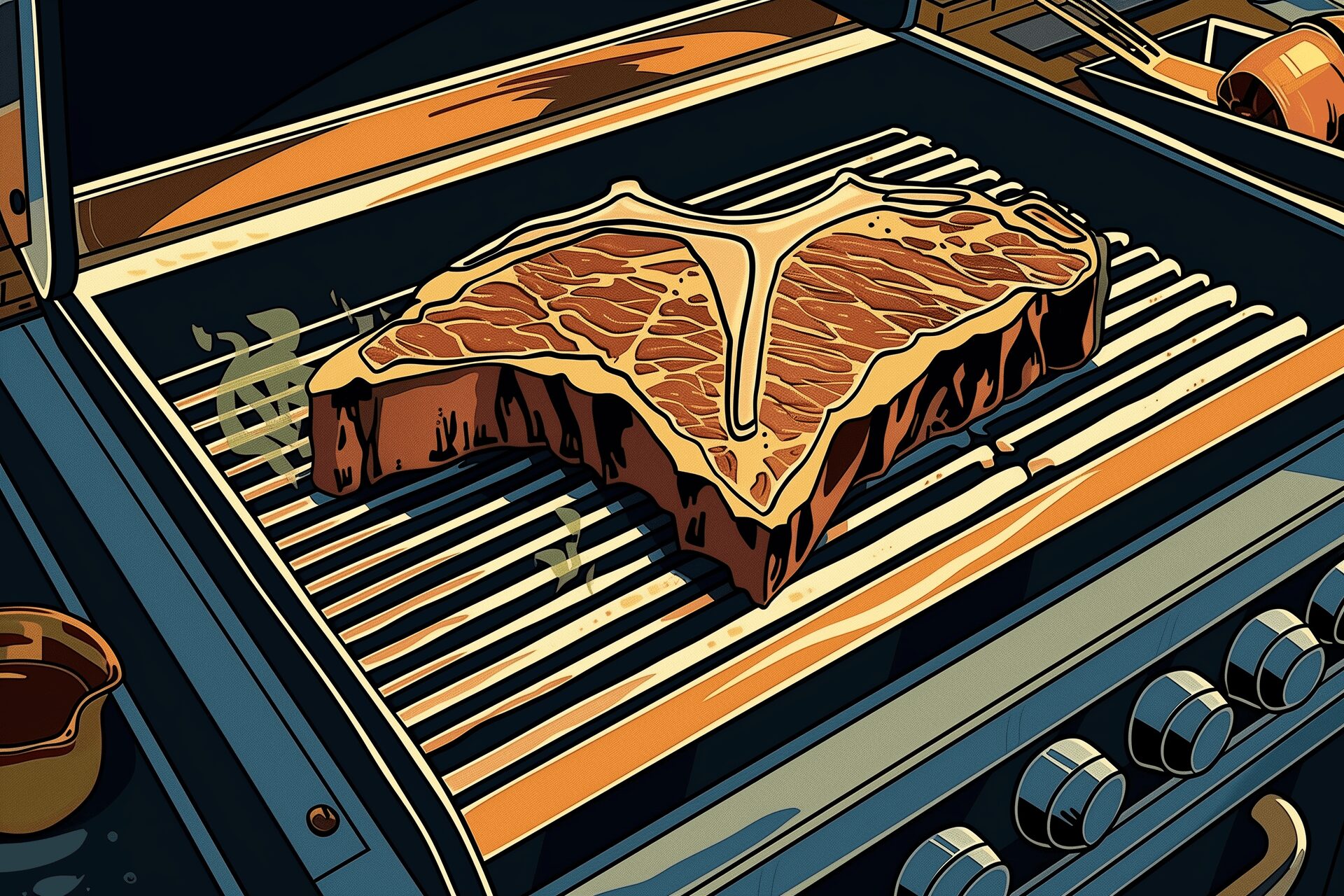A Bite of the Past: The Fascinating History of Hot Dogs
Feb 22, 2024

As an Amazon Associate, Modded gets commissions for purchases made through links in this post.
The hot dog, a beloved and iconic American snack, has a fascinating history that spans centuries and continents. From its humble beginnings to its status as a staple at ballgames and backyard barbeques, the hot dog has become a symbol of American culinary culture. Here’s everything you need to know about the history of hot dogs, their journey through time and the evolution of this delicious treat.
The Birth of Sausage: A Brief History of Hot Dogs
We can trace the story of hot dogs back to ancient times when various cultures embraced the concept of encasing seasoned meat in a tubular casing. Sausages, a precursor to the modern hot dog, were a popular and practical way to preserve and consume meat. Ancient Greeks and Romans are credited with the creation of the earliest sausages, flavored with spices and a variety of herbs.
The history of hot dogs is rich, with various countries claiming the invention as theirs. While, the Ancient Greeks and Romans enjoyed sausages, Germans claim they were the inventors of the hot dog, recently celebrating its 500th birthday.
The Migration of Sausages
As European Immigrants made their way to the United States in the late 19th and early 20th centuries, they brought their culinary traditions with them, including the art of sausage making. German immigrants, in particular, played a significant role in shaping the hot dog’s early history. The frankfurter, a pork sausage originating from Frankfurt, Germany, became a central figure in developing the modern hot dog.
The Coney Island Connection
The hot dog’s popularity in the United States can be traced back to Coney Island, New York, in the 1860s. Charles Feltman, a German immigrant, is credited with introducing the hot dog to the American palate. Feltman, who owned a pie-wagon, began selling sausages in rolls as a convenient and portable meal for beachgoers. This concept took off, and Feltman’s “Coney Island Red Hots” soon became a sensation.

The Nathan’s Famous Legacy
Another pivotal moment in hot dog history occurred in 1916 when Nathan Handwerker opened Nathan’s Famous Hot Dog Stand on Coney Island. Nathan’s hot dogs quickly gained a reputation for their high quality and delicious taste. The annual Nathan’s Famous Hot Dog Eating Contest, which began in 1916, has become a Fourth of July tradition and proof of the enduring popularity of hot dogs.
Professional eater, Joey Chestnut, holds the Nathan’s Famous Hot Dog Eating Contest record of 76 hot dogs and buns in 10 minutes. As of 2023, he has won the competition 16 times, losing only once in 2015.
The Hot Dog’s Rise to Fame
As the hot dog gained popularity, it became a staple at sporting events and picnics, solidifying its place in American culture. The association between hot dogs and baseball, in particular, became so strong that spectators often refer to them as “ballpark franks.” The convenience and affordability of hot dogs also made them a popular choice during the Great Depression, further ingraining them in American culinary traditions.
The Modern Hot Dog
Today, hot dogs come in various forms, from classic beef and pork franks to vegetarian and gourmet options. Regional variations, such as the Chicago-style hot dog with its unique toppings, showcase the adaptability of this beloved treat. Hot dogs have also become a global phenomenon, with each culture adding its own twist to the traditional sausage in a bun.
The Hot Dog Goes Global
While the hot dog may be an iconic American dish, its appeal has transcended borders, and various countries have put their own unique spin on this classic. Each country has made this treat their own, from diverse toppings to alternative ingredients.

South Africa: The Boerewors Roll
In South Africa, citizens commonly refer to hot dogs as “boerewors rolls,” incorporating the country’s rich culinary traditions. Boerewors, a type of sausage, is nothing short of a staple in South African cuisine, and when served in a roll, it creates a delicious and satisfying meal.
The star of the show is the boerewors, a flavorful sausage made with coarsely minced beef and sometimes mixed with pork or lamb. They season the meat with a blend of spices like coriander, cloves and nutmeg, largely attributed to the Malaysian influence in the Cape. South Africans typically top their boerewors rolls with chutneys, tomato and onion relishes, mustard and tomato sauce.
Germany: The Currywurst
Though not a hot dog in the traditional sense, the currywurst is a famous German street food. It consists of sliced, steamed and then fried pork sausage, covered in a spiced ketchup-based sauce and sprinkled with curry powder. Germans top their currywurst with sauerkraut, mustard and potato salad, minus the bun.
South Korea: Korean Corn Dogs
A popular street food in South Korea, the Korean corn dog features a hot dog skewered on a stick, coated in a sweet batter and deep-fried. You can further customize your corn dog with a variety of coatings like sugar or even french fries.
Sweden: Tunnbrödsrulle
Swedes enjoy their version of a hot dog, called a Tunnbrödsrulle, wrapped in a soft flatbread. They then top their sausage with mashed potatoes, shrimp salad, lettuce, onions and various sauces, like ketchup or mustard.
Australia: The Aussie Dog
Down under, Aussies enjoy their sausages on a slice of white bread. They then top their sausage sandwich with grilled onions, bacon, cheese, barbeque sauce and sometimes even a fried egg.

10 Things You Probably Didn’t Know About Hot Dogs
If you think you know everything there’s to know about hot dogs, you’re probably wrong. Here are 10 fascinating facts about this American delicacy:
- The longest hot dog ever created measured at a whopping 668 feet, 7.62 inches and fed 2000 people. It was made in Paraguay in 2011.
- In 2007, astronauts on the International Space Station enjoyed hot dogs as part of their Independence Day celebration. The hot dogs were specially prepared to be consumed in a microgravity environment and are certified space food.
- In the U.S., hot dogs are most popular between Memorial Day and Labor Day. During this time, Americans are expected to consume roughly seven billion hot dogs.
- Out of all the cities, Los Angeles residents consume the most hot dogs.
- World leaders have eaten hot dogs at multiple presidential events. During a picnic, Franklin D. Roosevelt served hot dogs to King George VI and Queen Elizabeth of England.
- Gourmet hot dogs have taken the culinary world by storm. Some restaurants feature exotic toppings like truffle oil, foie gras or even edible gold leaf, turning the humble dog into a luxury experience.
- Americans consume more than 150 million hot dogs on the fourth of July alone. If laid out, they could stretch from L.A. to D.C. five times.
- Mustard is the most popular hot dog topping in the U.S.
- Historians remain unsure about who coined the term hot dog and why it received this mysterious name.
- The first words Mickey Mouse said onscreen were “hot dogs.”
Hot Dogs Are Here To Stay
The history of hot dogs is a tale of culinary evolution, shaped by the traditions of immigrant communities and the ingenuity of entrepreneurs. From its early days on Coney Island to its status as a quintessential American food, the hot dog has endured the test of time.






